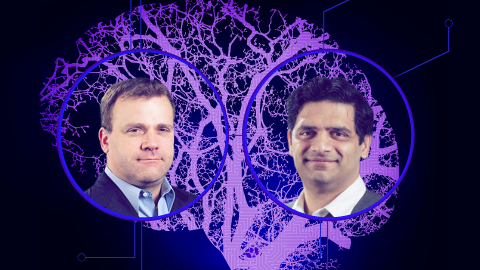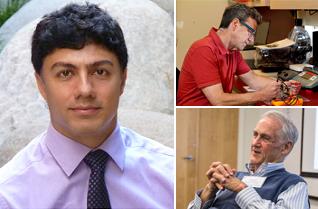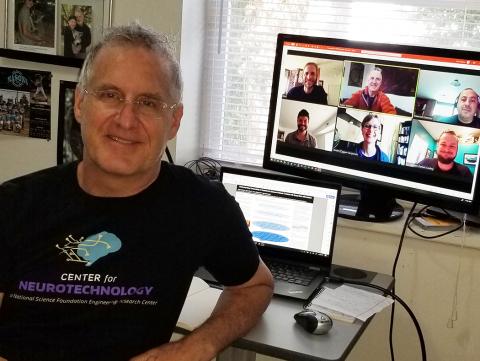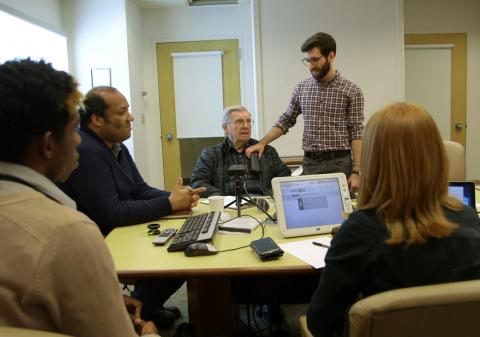Chris Rudell and Vivesh Sathe have vision. Together, with graduate students in their labs at the University of Washington Department of Electrical & Computer Engineering (UW ECE), they have designed a sophisticated neural interface in the form of a small, implantable chip. This chip is designed to help neuroscientists deepen their understanding of the brain and promises to take engineers one step closer to developing more effective devices to treat neurological disorders and conditions such as Parkinson’s disease, epilepsy, depression and obsessive-compulsive disorder. Looking ahead, they developed the chip to be scalable and translatable into future technologies for decades to come.
Feature Stories
These articles cover many different aspects of the Center for Neurotechnology and its faculty, student and staff members. For more stories, visit the Engage and Enable blog

Center for Neurotechnology (CNT) member Amir Alimohammad, an associate professor of electrical and computer engineering at San Diego State University (SDSU), was recently awarded a three year, $320,000 grant from the National Science Foundation to develop a novel processor architecture for brain-computer interfaces. The award will be funding work with potential for profound and long-term human impact.
“The primary application of the energy-efficient brain-implantable neural signal processor in development is to improve the rehabilitation of people disabled by a variety of disorders such as stroke and spinal cord injuries. This has the potential to improve the quality of life for millions of patients,” Alimohammad said.

There is no question that the novel coronavirus, also known as COVID-19, threw teachers and educators an unexpected curve ball this year. In response, the education team in the Center for Neurotechnology (CNT) discussed at-length which Center programs could be converted to an online experience in light of the pandemic and how to do that most successfully. Throughout the summer, CNT staff and faculty gained experience moving into a virtual learning environment, mastered the many challenges involved, and two staff members even published a paper about how to succeed at transitioning from in-person to online education.

Students in the University of Washington’s Neural Engineering Tech Studio course have done well in an online, virtual learning environment, despite ongoing pressures from the novel coronavirus pandemic and current events. In this class, students design and engineer devices to assist people with a wide range of neurological conditions such as paralysis, autism, blindness and Parkinson’s disease.
![Tian Wang (left) is shown wearing a device he and his classmates (right [top to bottom] Samuel Broadwell, Katriel Looney and Kenny Lu) designed and engineered in the Neural Engineering Tech Studio. The team’s prototype, Haptic Vision, could replace navigation canes for people who are visually-impaired. Students from team Haptic Vision with their engineering prototype](https://centerforneurotech.uw.edu/sites/centerforneurotech.uw.edu/files/styles/large/public/flat_HV%20students.jpg?itok=bb9h76wj)
CNT-funded research in Howard Chizeck’s lab at the University of Washington is aimed at improving quality of life for people with protracted, often lifelong, neurological disorders. Industry partners such as Medtronic contribute to and accelerate this challenging work by providing investigational research devices.
Ben Ferleger is keenly aware of the positive impact neurotechnology can have on quality of life.

